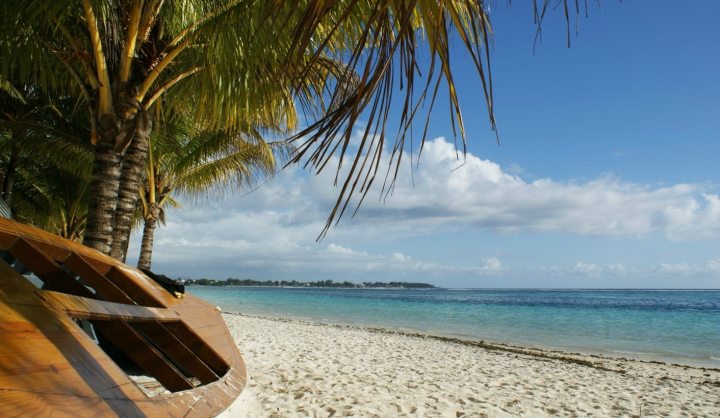Africa
ISS Today: Trouble in paradise as Mauritius tackles corruption scandal

The president’s resignation shows that mechanisms of holding politicians to account are still working. By Simon Allison for ISS TODAY.
First published by ISS Today
The island of Mauritius seems to have it all. Pristine beaches, sunshine in abundance, and the best governance in Africa.
That’s according to the latest iteration of the Ibrahim Index of African Governance, which once again ranks Mauritius as the best governed country on the continent. It boasts the top scores in the categories of safety and rule of law, sustainable economic opportunity, and human development; and the second-best score in the participation and human rights category.
But a major corruption scandal is putting a dent in Mauritius’ picture-perfect image. It has forced the president – Africa’s only female head of state – to resign just two years into her term of office.
At first glance, the scandal seems like a relatively innocuous mix-up. President Ameenah Gurib-Fakim, while on a shopping spree, used the wrong credit card to buy jewellery and other luxury goods. Instead of using her personal credit card, she used one belonging to the Planet Earth Institute, a London-based nongovernmental organisation that advocates for “the scientific independence of Africa”.
At the time, Gurib-Fakim was on Planet Earth Institute’s board. The organisation had given her a credit card to facilitate her board-related travel, and to implement related projects in Mauritius. Gurib-Fakim says she inadvertently confused the two credit cards.
When the mix-up was discovered, Gurib-Fakim immediately paid back the money – a sum in excess of €25,000. The Planet Earth Institute confirmed her account.
Even on the president’s own version of events, there are serious questions to be asked: Is it not a conflict of interest for Gurib-Fakim to be both head of state of Mauritius and also on the board of an NGO? Is it ever appropriate for an NGO to pay for the travel of a sitting head of state?
But a closer examination of both the president and the Planet Earth Institute raises even graver concerns.
The head of Planet Earth Institute is one Álvaro Sobrinho, a prominent Angolan banker with a chequered past. He has previously been investigated by Portuguese authorities in relation to accusations of money laundering and fraud, but no charges have ever been brought.
Sobrinho acquired an investment banking licence in Mauritius in 2016, shortly after banking regulations were changed to make it easier to do so. At that point, Gurib-Fakim was already on the Planet Earth Institute board.
This, really, is the heart of the scandal. Did the Mauritian president use her influence to help her Angolan associate obtain a banking licence? She fiercely denies any impropriety, but opposition parties have been calling for her to step down since early 2017.
The final straw came when her own party turned against her, with Prime Minister Pravind Jugnauth demanding that she leave office. In the Mauritian political system, the prime minister is the real executive power, while the presidency is a more ceremonial role.
On 18 March, Gurib-Fakim’s lawyer Yusuf Mohamed confirmed that the president would step down on Friday 23 March, “to prevent a constitutional crisis”.
Mohamed said: “She doesn’t want the country … to suffer. In the country’s best interests she has decided to leave.”
This is by no means the end of the scandal, however. Opposition parties and local civil society groups are demanding a commission of inquiry be established to look into the incident.
“Transparency Mauritius is very worried about this issue, which touches the highest level of the state. Concerning the Alvaro Sobrinho affair, we have demanded that a commission of inquiry be instituted, but there has been none,” said Philippe Hardy, head of the Mauritius chapter of Transparency International, speaking to local media.
But any potential inquiry could uncover further embarrassing details for the ruling party – and, perhaps, entangle the prime minister himself.
Lalit, a minor opposition party, said in a statement that Jugnauth must answer for his role in the affair.
“When he was Finance Minister and not yet also Prime Minister, [Jugnauth] brought in new legislation which everyone found curious. It was to permit the licensing of ‘investment banks’ through the Financial Services Commission, thus circumventing the Bank of Mauritius.
“In fact, the Bank of Mauritius seems to have refused Alvaro Sobrinho a banking licence … The total incoherence of this government is symbolized in this strange state of affairs.”
There’s no doubt that the Mauritian president’s spending scandal is a blow to the island’s long-held reputation for good governance. But it also, counterintuitively, offers some insight into how that reputation has been forged.
For one thing, it is worth noting the relatively small sum for which Gurib-Fakim has been forced to fall on her sword. €25,000 is
Another thing Mauritius has going for it is the fact that the president resigned at all. There are plenty of examples of African leaders who have stubbornly clung to power regardless of the nature or volume of accusations against them – just think of former South African president Jacob Zuma and the litany of corruption charges brought against him while in office, none of which persuaded him to resign.
That Gurib-Fakim is indeed resigning is a sign that the mechanisms of holding politicians to account in Mauritius are still working – for now, at least. Admittedly, a far greater test of these mechanisms will come if Jugnauth is dragged further into the fray.
Nonetheless, these are worrying times for Mauritius. Maybe paradise is not so perfect after all. DM
Simon Allison is an ISS Consultant.
Photo Pxsphere: https://pxhere.com/en/photo/874307

















 Become an Insider
Become an Insider